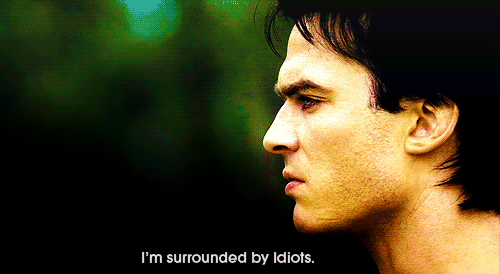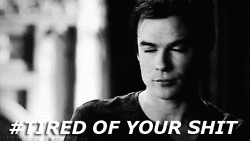Warning: this will be a bit ranty.
There’s a story that goes around in asexual communities, often when someone tries to explain asexuality for the first time. It goes like this:
I never really understood the fuss about dating. I’ve always had good friends, but sometimes they make jokes about sex and I never get them. The idea of taking off my clothes and rubbing my body against someone else’s is just weird. I can’t imagine getting married. I’ve never had a boyfriend/girlfriend/partner, although I wouldn’t mind having a really close friend that is my roommate. Everyone said I was a late bloomer or that I would like sex if I tried it, but it just doesn’t make any sense to me. I’m completely oblivious to come ons and flirtation, I don’t like to dress sexy, and I prefer to be fairly agender. I’ve never had sex, haven’t dated, don’t kiss, and probably never will. I’m asexual, and everything about sex is foreign to me, which means I’m socially awkward.
Unfortunately, this is not the nice, clean, clearcut story that I experienced, and it does a large disservice to many aces who are capable of functioning in allosexual society without any feelings of difference. One of the first ways that asexuality gets defined is by lack: you’re lacking attraction. Many people who openly identify as asexual and who write about their experiences seem to identify at least something like lack: they didn’t date. They didn’t kiss. They didn’t have crushes. All of these are things that others wanted or had, but which they didn’t want.
I started dating when I was 14. Compulsory sexuality is an extremely strong force, and especially for someone like me who really enjoys close relationships and tends to prioritize one relationship over all others, the romantic model works well for me (probably too well, but that’s a story for another day). I’ve been in a romantic relationship nearly constantly since then. I’ve had sex with multiple partners, and at the time I was perfectly happy with that. I was never particularly confused by my orientation, always clearly straight. I’ve had crushes since I was 13 or 14. I’ve talked about boys with my friends and hit all the dating, sexual, and romantic milestones that most people do: first date, first kiss, first boyfriend, first breakup. I’m not confused by the pain and hurt and confusion that often comes along with romantic relationships.
I have always wanted romantic relationships. I feel attraction, although not sexual attraction. I don’t fit the typical script of asexuality. It took me until this year (and I am 23) to figure out that I might be ace. Why? Because I’m adaptable. I’m good at making my experience fit into scripts and narratives. I’m really good at doing what I’m supposed to do and think that it’s what I want to do. I have strong romantic feelings, and for aces who aren’t also aro, it can be easy to meld your romantic tendencies into the dominant patterns of sexuality in order to survive.
I’ve felt uneasy with the accepted norms of the ace community for a while now. I’ve wondered if I can really be ace if I didn’t have these experiences. But right now I’m asking a different question: does it help us to have these “tells”, these inside jokes among the community of always being the third wheel, of not understanding “that’s what she said”, or of never wanting to date?
The major benefit that I can see in these tropes is that they help us build community and they remind us that asexual experiences are different from allosexual experiences. But I also see numerous problems. First, there are tons of aces out there who don’t have these experiences, and positing them as litmus tests for aceyness actually divides the community. But more than that, it focuses more on what we’re lacking, how we diverge from the allosexual norm, instead of looking at the things we actually DO want. Once again, asexuality is NOT having all of these things, lacking the empathy and understanding to connect with other people, being on the fringe because we can’t do what others do.
When the story that is asexuality is about sticking out like a sore thumb, about being flabbergasted by your peers, or about knowing early on that you’re different, we erase the very real ability of many aces to blend in and adapt, to fit their needs into the scripts that are available to them, and we make aces look awkward and bizarre. It makes it look as if we’re incapable of empathy (hey guess what, I can actually empathize with feelings I’ve never had).
Perhaps worse, it helps to erase the ways that compulsory sexuality can interact with asexuality. One of the reasons I have been so good at melding my experiences into the dominant narrative is because we are awash in sexuality from such a young age. I learned how to make sex jokes because everyone made sex jokes all the time. I started dating because I knew early on that you dated someone you felt drawn to, all attraction is sexual attraction, dating is normal. That is what society tells us. Being asexual does not make you immune to societal influence, and it’s important to recognize that.
Yes, ace experiences are different from other people’s experiences. Yes, I have spent some time being a bit flabbergasted that people could be so motivated by sex. But that doesn’t mean that I’m incapable of functioning in a society designed for allosexual people. It doesn’t mean I can’t adapt or learn. It seems a bit condescending to imply that someone can’t understand sexual humor unless they’re motivated by sex, or that they wouldn’t understand why a relationship was important to another person unless they wanted sex and romance. We’re inundated with sex from the moment we’re born. Just as women learn to understand men’s experiences, so ace people learn early on to understand allosexual experiences early on.
Perhaps there are some aces that remain fairly oblivious their whole lives. But I can’t be the only ace out there who learned how to act allo in a society that prioritizes allo experiences. I suspect that if we started talking about some of those narratives, there might be a whole lot of people out there who come out of the woodwork and say “that’s me”.
These “tells” give us one picture of what it’s like to not feel sexual attraction. But what about the tell that says “I had sex because it’s what you’re supposed to do and it felt nice, but I preferred my relationships without it”? Or the one that says “I always thought I was monogamous because more sex sounded horrible to me, but now I think I’m in love with two people at once” or the one that said “I love this person and so I think I should have sex with them, but there are so many other things I’d rather do more”.
Not all of the tells are glaring social deviations. You can’t peg someone who’s asexual by looking for the socially awkward one with no partner and no sense of humor. Especially for those who are in the gray asexual category, or those who have romantic attractions, their behaviors can look a lot like those of allosexuals, but just different enough that they feel incredibly broken.
This is part of the tendency for people to point towards sexual trauma or medical dysfunction or gender confusion or disease as the reasons for asexuality: for some bizarre reason the people who manage to muddle through in a fairly mundane way don’t get the label asexual. We complain a lot about the oppression model of queerness, but in many ways we practice it in the asexual community too: if you weren’t weird/awkward/uncomfortable enough in your teen years, you’re probably not ace.
It seems to be accepted wisdom within the ace community that romantics get more air time. I haven’t seen this. I haven’t seen romantic whos blog, or who talk about what it’s like to try to find a romantic relationship in which the partner will accept you without sex. I haven’t seen romantics who talk about assuming their whole lives that when people talked about being “attracted” they were referring to what I felt: romantic attraction. Flutters in the chest, anxiety, excitement, tongue-tied moments, the need to see the beloved. Nobody talks about the moment that shatters your whole world when you realize that feeling that doesn’t mean you want sex.
I never felt a lack of anything. I never felt like I was missing out. I felt like things were being forced on me, like there were scripts and I knew them, but I didn’t like them. I don’t want to be defined by lack. I don’t want asexual scripts to replace allosexual scripts.
Perhaps part of this is bitterness at not being the gold star ace. But hopefully if we tell more varied stories, we won’t have to compare ourselves to that false ideal.





















 (not me)
(not me)